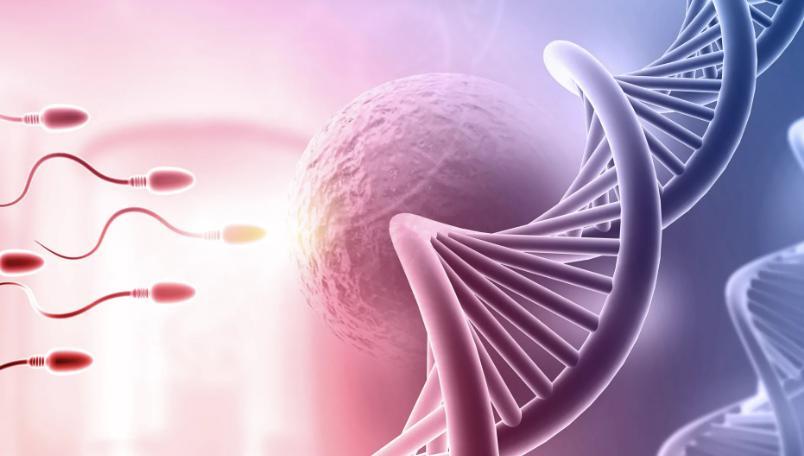
Scientists Discover ‘DNA Organiser’ Linking Fertility and Cancer
A groundbreaking study published recently has shed new light on the intricate relationship between fertility and cancer. Researchers at Kyoto University have made a remarkable discovery, identifying a protein complex called STAG3-cohesin that plays a crucial role in organizing DNA in sperm stem cells. This finding has significant implications for our understanding of fertility and cancer, and could potentially lead to new avenues for treatment and prevention.
The study, published in the journal Nature, reveals that STAG3-cohesin is essential for the proper maturation of sperm stem cells in mice. Without this protein complex, the sperm stem cells are unable to mature properly, leading to infertility. This finding has significant implications for human fertility, as it suggests that disruptions to the STAG3-cohesin complex could be a contributing factor to infertility in certain individuals.
But the significance of this discovery extends far beyond the realm of fertility. The researchers also found that STAG3-cohesin is highly expressed in certain immune cells and cancers. In fact, blocking this protein complex slowed the growth of tumours in laboratory experiments. This finding has significant implications for cancer treatment, as it suggests that targeting STAG3-cohesin could be a viable strategy for slowing the progression of certain types of cancer.
So, what exactly is STAG3-cohesin, and how does it fit into the complex dance of DNA organization and cancer development? To understand the significance of this discovery, it’s essential to delve into the world of DNA organization and the role of cohesin proteins.
The Role of Cohesin Proteins in DNA Organization
Cohesin proteins are a type of protein complex that plays a critical role in organizing DNA within the nucleus of cells. These proteins are responsible for holding together the two sister chromatids that are formed during cell division, ensuring that the genetic material is properly separated and transmitted to daughter cells.
Cohesin proteins are composed of four subunits: Rad21, Smc1, Smc3, and STAG3. The STAG3 subunit is particularly important for the cohesion complex, as it helps to recruit the other subunits to the chromatin and facilitate the binding of the cohesion complex to DNA.
The Discovery of STAG3-Cohesin in Sperm Stem Cells
The researchers at Kyoto University used a combination of biochemical and genetic techniques to identify the role of STAG3-cohesin in sperm stem cells. They found that STAG3-cohesin is essential for the proper maturation of sperm stem cells, and that disruptions to this protein complex can lead to infertility.
To make this discovery, the researchers used a technique called CRISPR-Cas9 gene editing to genetically modify mice so that they lacked the STAG3-cohesin protein complex. They then analyzed the sperm stem cells of these mice and found that they were unable to mature properly, leading to infertility.
The Link to Cancer
But the significance of this discovery extends far beyond the realm of fertility. The researchers also found that STAG3-cohesin is highly expressed in certain immune cells and cancers. In fact, blocking this protein complex slowed the growth of tumours in laboratory experiments.
To make this discovery, the researchers used a technique called RNA interference (RNAi) to specifically target the STAG3-cohesin protein complex in cancer cells. They found that blocking this protein complex slowed the growth of tumours and reduced the number of cancer cells.
Implications for Fertility and Cancer Treatment
The discovery of STAG3-cohesin has significant implications for our understanding of fertility and cancer. For individuals struggling with infertility, this discovery could lead to new treatments that target the STAG3-cohesin protein complex. For cancer patients, this discovery could lead to new avenues for treatment and prevention.
In terms of fertility treatment, the discovery of STAG3-cohesin could lead to new methods for improving sperm quality and increasing fertility rates. For example, researchers could develop treatments that target the STAG3-cohesin protein complex to improve sperm maturation and increase fertility.
In terms of cancer treatment, the discovery of STAG3-cohesin could lead to new strategies for slowing the progression of certain types of cancer. For example, researchers could develop treatments that target the STAG3-cohesin protein complex to slow the growth of tumours and reduce the number of cancer cells.
Conclusion
The discovery of STAG3-cohesin is a groundbreaking finding that has significant implications for our understanding of fertility and cancer. This protein complex plays a critical role in organizing DNA in sperm stem cells, and disruptions to this complex can lead to infertility. Additionally, STAG3-cohesin is highly expressed in certain immune cells and cancers, and blocking this complex can slow the growth of tumours.
As researchers continue to explore the role of STAG3-cohesin in fertility and cancer, we may uncover new avenues for treatment and prevention. For individuals struggling with infertility, this discovery could lead to new hope for building a family. For cancer patients, this discovery could lead to new strategies for slowing the progression of this devastating disease.
Source:
https://www.sciencedaily.com/releases/2025/08/250826005229.htm






